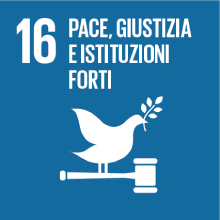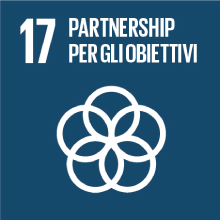HISTORY OF GLOBAL RELATIONS
- Anno accademico
- 2023/2024 Programmi anni precedenti
- Titolo corso in inglese
- HISTORY OF GLOBAL RELATIONS
- Codice insegnamento
- LT9039 (AF:385469 AR:251662)
- Modalità
- In presenza
- Crediti formativi universitari
- 6
- Livello laurea
- Laurea
- Settore scientifico disciplinare
- M-STO/02
- Periodo
- 3° Periodo
- Anno corso
- 2
- Spazio Moodle
- Link allo spazio del corso
Inquadramento dell'insegnamento nel percorso del corso di studio
-Analyze Global History in a multidisciplinary perspective able to encompass political, economic and cultural factors
-Analyze networks of cultural, economic and political relations
The above-mentioned three specific objectives aim to give students the instruments necessary to develop a critical view of the topics discussed and to develop an independent and multidisciplinary methodology for the analysis of historical phenomena to better understand the present.
Risultati di apprendimento attesi
- Understand the general framework of the historical analysis of globalization
- Understand the specificity of the early modern period and its heritage
- Understand the multidisciplinary character of the historical analysis
2. Ability of applying knowledge and understanding
- Understand the general framework of the historical analysis of globalization > Ability of discussing subjects related to the field (Global History) in a specialized language and according to an historical methodology
- Understand the specificity of the early modern period and its heritage > Ability of pinpointing the characters of the early modern period and confronting them with the following ages
- Understand the multidisciplinary global character of the historical analysis > Ability of applying the historical methodology acquired also to other fields of study (e.g. other courses, final dissertation)
3. Judgement abilities
- Ability of connecting the facts and data learnt during lessons
- Ability of organizing the course materials (lessons and readings) in a coherent interpretation
4. Communicative abilities
- Ability of presenting the issues related to the field of study using specialized language
- Ability of presenting the knowledge acquired from lessons and readings in a coherent discourse
5. Learning abilities
- Ability of taking notes during lessons
- Ability of critically reading the assigned bibliography
- Ability of connected the knowledge acquired to nowadays issues
Prerequisiti
Contenuti
This course will take into account major issues in Global History (i.e. the history of how the world became "globalized" and interconnected), with specific focus on the following aspects:
- globalization: perceptions and practices
-understanding global history as an analytical tool
- understanding the origins of globalization
- understanding globalization as cultural, political and economic interconnectedness
- perceptions of "the other"
-imagining other realities: globalization and utopias, globalization and reforms
- how people became aware of living in a globalized world during the early modern age
-globalization of disease
- representations of a globalized world VS the emergence of nationalism
-local and global: understanding early modern globalization from Venice
Testi di riferimento
1. their class notes
2. the slides and the materials available on moodle
For students who do not have the possibility to complete the preparation in the classroom by participating to the lessons, the following integrative materials are indicated
1.The book by Charles H. Parker, Global interactions in the Early Modern Age, 1400-1800, Cambridge, Cambridge University Press, 2010 (available also in e-book format)
2.ALL the ARTICLES/ESSAYS they will find in a specific section on Moodle ("Integrative materials")
Modalità di verifica dell'apprendimento
Students will be asked to pick a topic (from the list "Venice and Globalization") and to write a podcast script of 650-750 words. Examples and guidance on how to write short and high diffusion texts will be provided.
The papers will be discussed in class according to a calendar which we will organize at the beginning of the lessons. The paper will receive a score between 0 and 3 and such score will be added, in case, to the grade achieved in the oral exam (Expected learning results 2.Ability of applying knowledge and understanding, 3.Judgement abilities and 4. Communicative abilities).
Final oral exam. The exam aims to assess the critical understanding of the contents discussed during the course and the individual reflection on the assigned bibliography. It will therefore consist of two questions. The approximate duration is 20 minutes.
The first question will ask the student to present a chosen subject (taken from lessons or bibliography), so that they can show their ability of organizing information in a coherent discourse and in a historical perspective (expected learning results 1.Knowledge and understanding and 4. Communicative abilities).
The second question will be on an issue explored during lessons or in the texts assigned so that the student can show their ability of personal re-elaboration, critical reading and understanding of scholarly literature (expected learning results 2.Ability of applying knowledge, 3.Judgement abilities and 5.Learning abilities).
NON ATTENDING STUDENTS
Final oral exam. The exam aims to assess the critical understanding of the contents discussed during the course and the individual reflection on the assigned bibliography. It will therefore consist of three questions. The approximate duration is 25-30 minutes.
The first question will ask the student to present a chosen subject (taken from lessons or bibliography), so that they can show their ability of organizing information in a coherent discourse and in a historical perspective (expected learning results 1.Knowledge and understanding and 4. Communicative abilities).
The second and third questions will be on an issue explored during lessons or in the texts assigned so that the student can show their ability of personal re-elaboration, critical reading and understanding of scholarly literature (expected learning results 2.Ability of applying knowledge, 3.Judgement abilities and 5.Learning abilities).
Modalità di esame
Metodi didattici
Case study analysis
Ppt presentations
Written and figurative sources
Digital Humanities
Lingua di insegnamento
Altre informazioni
Students with disabilities can contact the Disability and Accessibility Office (disabilita@unive.it) to take advantage of the services available (e.g. alternative examination methods, readers, etc.).
Students interested in carrying out a bachelor's degree thesis in History of Global Relations can contact the professor for the appropriate vademecum (by writing directly to giulia.delogu@unive.it) or they can meet to the professor in her office hours. A preliminary vademecum is available at the Notices section of the professor's webpage.
Obiettivi Agenda 2030 per lo sviluppo sostenibile
Questo insegnamento tratta argomenti connessi alla macroarea "Cooperazione internazionale" e concorre alla realizzazione dei relativi obiettivi ONU dell'Agenda 2030 per lo Sviluppo Sostenibile


